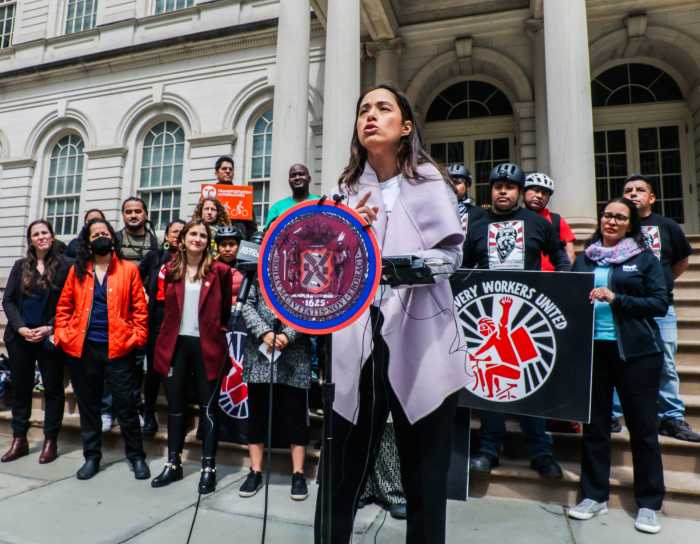
BY ALINE REYNOLDS | Fifty-eight-year-old Jim Martin, a battalion chief that worked at Ground Zero for six months after 9/11, was diagnosed with prostate cancer in 2009.
Frequent urination and other cancer-related symptoms forced Martin to retire in June of this year. “I knew when I joined the Fire Department that I had a dangerous job, but [the post-9/11 recovery effort] went above and beyond what was required of us,” said Martin. “I just wish I had been able to retire under my own will power, rather than the [Fire] Department saying, ‘we don’t think you can do the job anymore.’”
Martin and scores of other cancer-stricken first responders may be one step closer to federal compensation for early retirement, suffering and other economic and non-economic losses. A new peer-reviewed article published in The Lancet medical journal reveals an increase in non-Hodgkin’s lymphoma, melanoma, thyroid and prostate cancer cases among firefighters who were exposed to Ground Zero toxins, compared to firefighters who weren’t exposed. The study also concludes that there is a heightened risk of these types of cancers among 9/11 firefighters who worked at Ground Zero, compared to the general American male population.
The new study follows the National Institute for Occupational Safety and Health’s (NIOSH) decision in July not to add cancer to the list of illnesses covered by the 9/11 Health and Compensation Act, alleging there is scant evidence to attribute the disease to Ground Zero exposure. The only other 9/11 cancer article published thus far is a 2009 case study conducted by Jacqueline Moline, former director of the W.T.C. Medical Monitoring and Treatment Program, which cites only a possible tie between 9/11-related cancers and Ground Zero toxins.
U.S. Congressmen Carolyn Maloney, Jerrold Nadler and Peter King issued a joint written statement underscoring the importance of the latest findings. The lawmakers are filing a petition this week, urging the 9/11 bill’s health program administrator, Dr. John Howard, to consider adding cancer to the list of treated illnesses in the next two months — prior to NIOSH’s next scheduled cancer review in early-to-mid 2012.
“Evidence of an increased risk of cancers among firefighters who served at Ground Zero underscores the severity of toxic exposures caused by 9/11, the full effects of which are still emerging 10 years after the attacks,” the officials said. “We will be looking closely at the findings published in the Lancet, and we hope that Howard will consider as soon as possible adding coverage for the cancers discussed in the Lancet study, which the Zadroga Act empowers him to do.”
Prior to the announcement of the petition on Sept. 6, NIOSH spokesperson Fred Blosser said the Institute would incorporate the latest study along with other new peer-reviewed literature in its 2012 cancer review. Responding to the announcement, Blosser said, “If a petition is filed, we will give it appropriate consideration.”
Though Moline is fairly certain there is a medical link, she is surprised by these early scientific results. “Typically, it takes longer for cancer to develop. From a scientific standpoint, it’s unusual that we’re seeing cancers show up so soon,” said Moline, who now runs the Queens W.T.C. Clinical Center of Excellence. “If we had [more recent] numbers today, we’d continue to see there are increased rates of cancers among the firefighters.”
The disease’s latency is precisely the problem, Moline explained, in gathering sufficient scientific evidence to convince the federal government to add cancer to the 9/11 health bill. These two studies, she said, must be taken seriously.
“We shouldn’t be waiting for perfect [scientific] conclusions to make decisions, ‘cause it could be life or death decisions for some folks,” said Moline. “If every future study shows different types of cancers are increased, you’ll have to [infer that] this is a consistent pattern.”






































